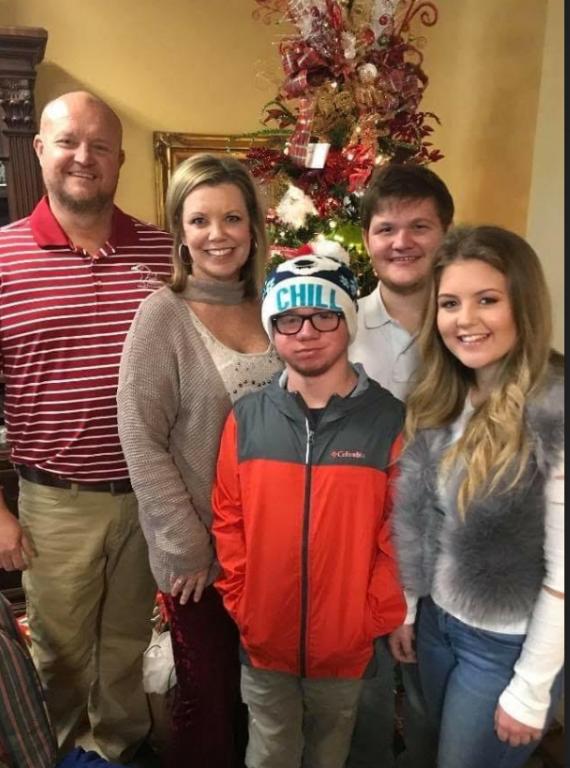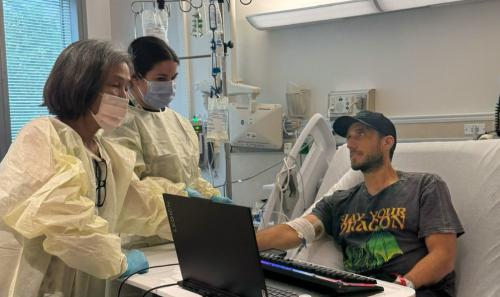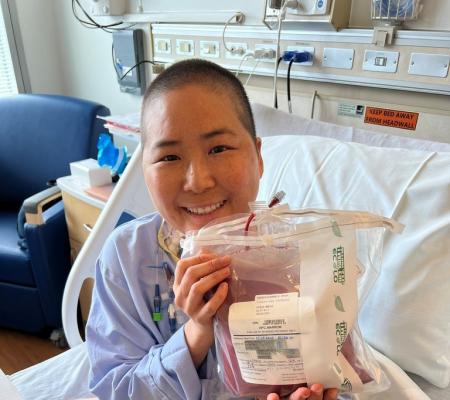
-
Understanding primary immunodeficiency (PI)

Understanding PI
The more you understand about primary immunodeficiency (PI), the better you can live with the disease or support others in your life with PI. Learn more about PI, including the various diagnoses and treatment options.
-
Living with PI
-
Addressing mental health
-
Explaining your diagnosis
- General care
- Get support
- For parents and guardians
-
Managing workplace issues
- Navigating insurance
-
Traveling safely

Living with PI
Living with primary immunodeficiency (PI) can be challenging, but you’re not alone—many people with PI lead full and active lives. With the right support and resources, you can, too.
-
Addressing mental health
-
Get involved

Get involved
Be a hero for those with PI. Change lives by promoting primary immunodeficiency (PI) awareness and taking action in your community through advocacy, donating, volunteering, or fundraising.
-
Advancing research and clinical care
-
Research Grant Program
-
Consulting immunologist
-
Diagnosing PI
-
Getting prior authorization
-
Clinician education
-
Survey research
-
Participating in clinical trials

Advancing research and clinical care
Whether you’re a clinician, researcher, or an individual with primary immunodeficiency (PI), IDF has resources to help you advance the field. Get details on surveys, grants, and clinical trials.
-
Research Grant Program

For Zach and Jaxsen Hunkapiller, the holidays are always a special time. But this year, they take on even more meaning, because the brothers celebrated their 11-year transplant anniversary on December 5 to treat chronic granulomatous disease (CGD).
Today, Zach, 22, is finishing his last year of law school at Mercer University, and Jaxsen, 19, is exploring his future career options. Meanwhile, their mother, Dawn Adams, of Douglas, Georgia, savors every moment of the holiday season with them, from gathering around the table for Christmas dinner to making traditional family goodies, like her peanut butter balls.
These moments become even more precious as Dawn reflects back at what was happening this time of year when Jaxsen and Zach were both undergoing transplants in 2007. Leading up to this, her sons had faced several life-threatening infections. In fact, Zach had to be life-flighted to Savannah, Georgia at seven weeks old to treat a bowel obstruction; this harrowing journey ultimately led to his CGD diagnosis. Meanwhile, Jaxsen was diagnosed in utero. While Dawn had managed their CGD with standard prophylaxis, she was becoming more and more concerned about their future.
“We kept hearing that gene therapy was right around the corner for years, and if we could just keep them healthy, we’d be okay,” said Dawn. “But as they were getting older, we felt that time was running out.”
Soon, she began to seriously consider a stem cell transplant for her sons. Yet, both Jaxsen and Zach lacked bone marrow donors; their little sister Erynn was not a match. After researching transplant options, she chose Duke University Hospital, which performed transplants for several diseases with unrelated umbilical cord blood. Although it was a relatively new way to treat CGD at the time, Duke had already had some success using cord blood to treat the disease as well.
Jaxsen and Zach were admitted in November 2007, and while they were discharged in January 2008, they needed to stay close to the hospital for ongoing outpatient treatment until June of that year. While both transplants were ultimately successful, no outcome can be exactly alike, even for brothers. Today, Jaxsen continues to have health issues resulting from his transplant, including arthritis and delayed growth, while Zach has not.
“After having two boys go through transplant, I have seen a wide spectrum of what can happen,” said Dawn, who described her life as being so “fully consumed" with her boys’ care 11 years ago, that she could not remember how to operate the remote control for her television upon returning home to Georgia.
She understands that the hardest part for many parents of children with CGD is deciding whether to move forward with transplant. In addition to the deep fears they have for their children, many are daunted by the unfamiliar responsibilities they will face as primary caregivers in an acute setting. Dawn said she is thankful to the transplant team for spending countless hours educating her on how to care for Zach and Jaxsen throughout the transplant and recovery process. As a result, she said she felt confident that she could handle everything they needed, from central line care to administering their many medications after discharge.
Dawn offers these simple, yet powerful words of advice to help parents prepare for their child’s transplant journey, should they decide to move forward:
“You can do it, and you will do it,” she said.
Related resources

Man with X-linked hyper IgM first-ever to receive novel gene therapy

Pharmacist with CVID receives bone marrow transplant

Undiagnosed: Reuben & Sherri Johnson on CGD, chronic illness, and the fight for healthcare
Sign up for updates from IDF
Receive news and helpful resources to your cell phone or inbox. You can change or cancel your subscription at any time.





The Immune Deficiency Foundation improves the diagnosis, treatment, and quality of life for every person affected by primary immunodeficiency.
We foster a community that is connected, engaged, and empowered through advocacy, education, and research.
Combined Charity Campaign | CFC# 66309

